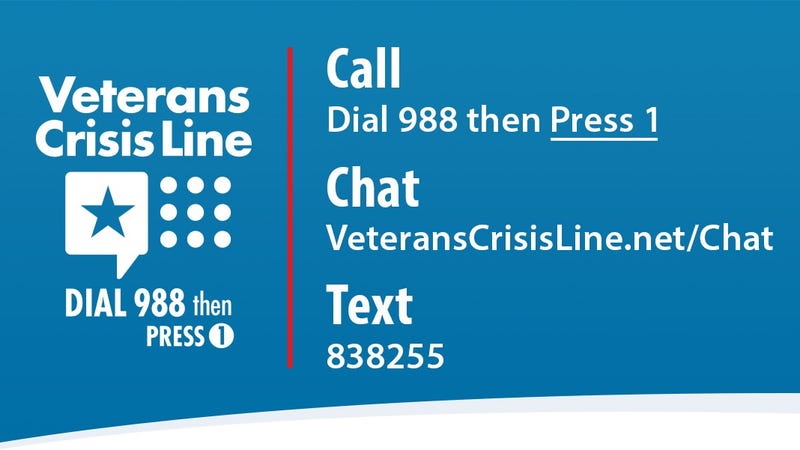
Starting Jan. 17, veterans in acute suicidal crisis will be able to go to any VA or non-VA health care facility for emergency health care at no cost – including inpatient or crisis residential care for up to 30 days and outpatient care for up to 90 days.
“Veterans in suicidal crisis can now receive the free, world-class emergency health care they deserve – no matter where they need it, when they need it, or whether they’re enrolled in VA care,” said VA Secretary for Veterans Affairs Denis McDonough in a statement.

Veterans do not need to be enrolled in the VA system to use this benefit.
“This expansion of care will save veterans’ lives, and there’s nothing more important than that,” added McDonough.
The final policy, which takes effect on Tuesday, will allow VA to:
- Provide, pay for, or reimburse for treatment of eligible individuals’ emergency suicide care, transportation costs, and follow-up care at a VA or non-VA facility for up to 30 days of inpatient care and 90 days of outpatient care.
- Make appropriate referrals for care following the period of emergency suicide care.
- Determine eligibility for other VA services and benefits.
- Refer eligible individuals for appropriate VA programs and benefits following the period of emergency suicide care.
Eligible individuals, regardless of VA enrollment status, are:
- Veterans who were discharged or released from active duty after more than 24 months of active service under conditions other than dishonorable.
- Former members of the armed forces, including reserve service members, who served more than 100 days under a combat exclusion or in support of a contingency operation either directly or by operating an unmanned aerial vehicle from another location who were discharged under conditions other than dishonorable.
- Former members of the armed forces who were the victim of a physical assault of a sexual nature, a battery of a sexual nature, or sexual harassment while serving in the armed forces.
In September, VA released the 2022 National Veteran Suicide Prevention Annual Report, which showed that veteran suicides decreased in 2020 for the second year in a row and that fewer vets died by suicide in 2020 than in any year since 2006.
The expansion of care will also increase access to acute suicide care for up to 9 million veterans who are not currently enrolled with VA.
Reach Julia LeDoux at Julia@connectingvets.com.
If you’re a veteran in crisis or concerned about one, contact the Veterans Crisis Line to receive 24/7 confidential support. You don't have to be enrolled in VA benefits or health care to connect. To reach responders, Dial 988 then Press 1, chat online or text 838255.


